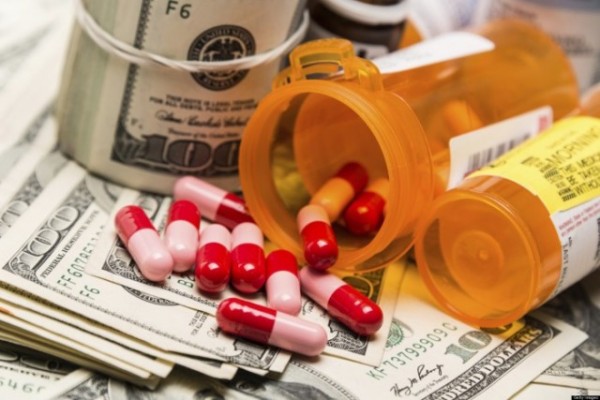
Advertisement
President Obama declared during his State of the Union Address that he’s putting Vice President Biden in charge of carrying out a multi-billion dollar “moonshot”, to cure cancer that Biden called for in wake of his son’s death. Unfortunately for Biden, and the public in general, Big Pharma has too much to lose by curing cancer, and too much to gain by keeping it in check. (1)
In 2012, for instance, Americans spent $325.8 billion on medications and that year was when medication spending decreased for the first time in decades. Just as cold and flu medications generate billions of dollars each year for Big Pharma, so do cancer treatments that merely maintain, rather than cure, the underlining condition. (2)
Cashing in on cancer
As reported by Michael Snyder, on the website End of the American Dream, Americans have a 1-in-3 chance of contracting some type of cancer. For men, the probability is closer to 1-in-2. These statistic are hardly shocking in the modern era, given that everyone either has or knows someone who has cancer. (2)
“Back in the 1940s, only one out of every sixteen Americans would develop cancer. Something has happened that has caused the cancer rate in this nation to absolutely explode, and it is being projected that cancer will soon surpass heart disease and become the leading cause of death in the United States,” explains Snyder. (2)
The World Health Organization (WHO) estimates that approximately 14 million people are diagnosed with cancer each year. This estimate is expected to increase by 70 percent within the next 20 years. (2)

“There are very few words in the English language that cause more fear than the word ‘cancer’, but despite billions spent on research and all of the technological progress we have made over the years this plague just continues to spiral wildly out of control,” said Snyder. “Why is that?” (2)
According to the Global Oncology Trend Report provided by the IMS Institute for Healthcare Informatics, worldwide spending on cancer medications rose by 10.3 in 2014 to $100 billion. In 2010, spending on cancer treatment was just $75 billion. The institute states the spike in price was caused by the introduction of new, more expensive cancer medications into the market between 2010 and 2014. (3)
New cancer treatments are expensive, and in many cases, ineffective
Murray Aitken, executive director of the IMS Institute, went on to note that the institute “made huge progress from a scientific perspective in understanding cancer,” and that “we’re at the edge of a major breakthrough in terms of cancer treatment.” (3)
Health officials have been stating for years that they are on a cusp of a cancer cure with the advent of new, more effective treatments. But if these new medications really are an effective way to keep cancer at bay, then why are cancer diagnoses rising at an unprecedented rate?
As reported by Health Impact News, at the beginning of the 20th century, 1 person in 20 would get cancer. By the end of the 1940s, that figure rose to 1 in 16; and by the 1970s, 1 in 10. Now, 1 out of 3 people are expected to get cancer in their lifetime. (2)
To make matters worse, the billions of dollars that Big Pharma pumps into traditional cancer treatments aren’t nearly as effective as they suggest. The five year survival rate for those diagnosed with cancer is 65 percent. The remaining 35 percent won’t survive this period. (2)
Fortunately, you don’t have to be another statistic. Abstaining from drugs and alcohol coupled with a healthy, well-balanced diet can drastically reduce your risk of cancer. It will save both your health and your wallet.
Sources include:
(1) USAToday.com
(2) NaturalNews.com
(3) USNews.com
This article may contain statements that reflect the opinion of the author
Advertisement
Advertisements















